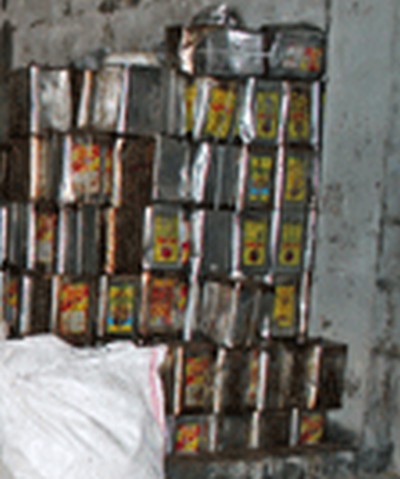The Mumbai Dry Fruits and Dates Merchants’ Association launched a booklet to help merchants and traders to function according to the new rules and regulations. Titled ‘Food Laws at Glance’, it was a 56-page quick-reference booklet to the Food Safety and Standards Authority of India (FSSAI).
The programme was organised in the Agricultural Produce Marketing Committee (APMC) Market, Vashi. The merchant community was present in large numbers. Ganesh Naik, guardian minister, Thane District, and state excise minister, Maharashtra, felicitated Rajal Asher, managing director, Bait Al Tamur, for his contribution to the export of dates.
Present at the event were Shashikant Shinde, Maharashtra’s water resourcesminister; Narendra Patil, member of the Legislative Assembly (MLA); Mahesh Zagade, commissioner, Food and Drug Administration, Maharashtra, and Mohan Gurnani, Federation of Assocaitions of Maharashtra (FAM).
Zagade said, “There are a lot of speculations related to the food safety laws and its procedures. Traders and merchants find it problematic and have tried to oppose it many times.”
“It is a good initiative to publish a book related to the Food Safety and Standards Act (FSSA). We appreciate the effort behind this. Merchants and traders have a greater responsibility to distribute safe and standard food to our people,” he added.
“Adulteration and the excessive use of chemicals has a destructive impact on thehuman body. Awareness about the laws can also avoid corruption in the system,” the state FDA chief stated.
Shinde said, “The government would take every possible step to facilitate good trade. With increased competition and strict rules on safe food increased problems around the trading of food.”
“But these initiatives can avoid doubts and misconceptions about the topic. But food traders have to ensure the quality of food materials and discourage any corruption in the field,” he added.
The minister, who represents the Nationalist Congress Party (NCP) and who is in charge of the Krishna Valley Irrigation Corporation, said, “We will strive to make this market in international level and compete with that of global standards.”
Naik said, “Without violating any rules and regulations, traders can earn a good profit and distribute good food for the public. We have seen problems occurring due to the excessive use of high chemicals in the states of Punjab and Maharashtra.”
“Long-sighted traders would not use chemicals for instant profits, which may destroy our environment and cause healthy lifestyles to collapse,” he added.
The Mumbai Dry Fruits and Dates Merchants’ Association was represented at the event by Vijay Kumar Bhuta, its president; Chetan Mehta, its vice-president; Girish Bhandari, its general secretary; Mahesh Laud, its joint secretary; Suresh Dama, its treasurer, and Rajendra Shah, its joint treasurer.
Bhuta said, “This booklet provides easy access and quick reference to FSSAI. This is designed to reach more merchants. This will help to create awareness among the merchants as well as customers about new laws and regulations.”
“This would throw light on dealer's fundamental rights and duties. This would perform as a guideline to merchants for an easy, valid and useful understanding of the law,” he added.





